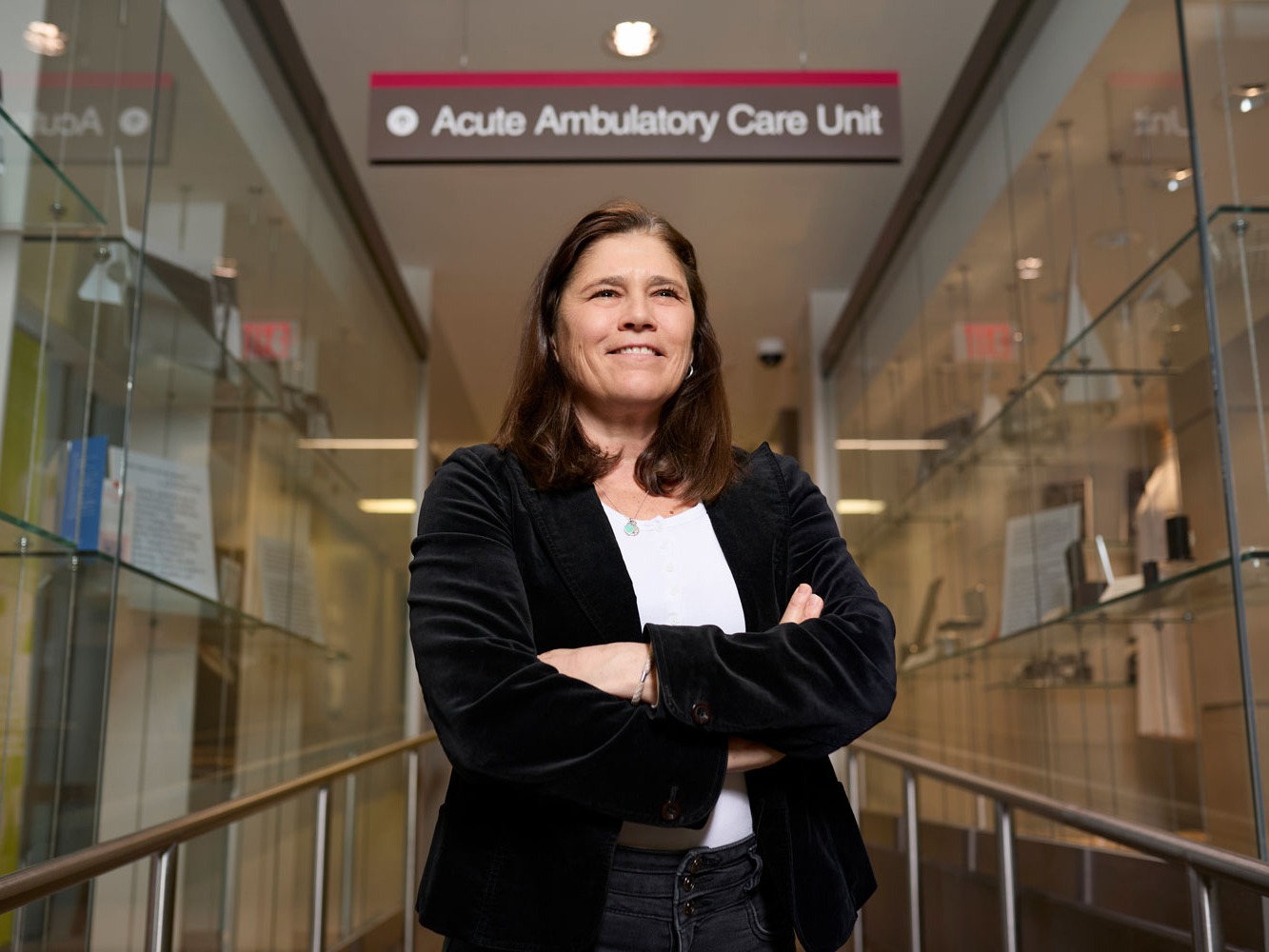Expanding substance use services through community partnerships
Dr. Jennifer Wyman speaking with a patient at WCH

Expanding substance use services through community partnerships

Dr. Jennifer Wyman speaking with a patient at WCH
Nearly 47,000 Canadian deaths are linked to substance use each year, with women being 54 per cent more likely to die prematurely due to drug use than their male counterparts. This can be attributed in part to the fact that many of those experiencing addiction are hesitant to seek help due to ongoing stigma, which is further increased for women. The multidisciplinary team at Women’s College Hospital’s (WCH) Substance Use Service (SUS) has set out to meaningfully overcome these statistics.
“People with histories of substance use often come to us having experienced a lot of stigma and shame in the healthcare system, resulting in fear, hesitancy and avoidance of treatment,” explains Dr. Jennifer Wyman, addictions specialist and SUS program lead. “Our program aims to address this by taking a holistic, trauma-informed approach to care and support.”
At the heart of this approach is a commitment to providing patient-centred care that recognizes and respects the intersectionality of substance use with other social determinants of health. Founded on the principles of inclusivity, accessibility, and compassion, the SUS program analyzes gaps in treatment access among underserved communities and works to establish strong partnerships to reach these groups.
"We are able to link the psychosocial supports and connection to community with traditional medication-based therapies and harm-reduction supports to increase treatment retention and support for patients,” says Dr. Wyman.
Nurse practitioner Janis Macdonald represents this pivotal link between the SUS program and the community. No two days are alike for Macdonald, who bounces between Women’s College Hospital and the Jean Tweed Centre.
A longtime pillar in Toronto’s west end, the Jean Tweed Centre supports women looking to overcome substance use and mental health challenges by offering withdrawal management options, 21-day residential programs, peer support groups, transitional housing resources, therapy and specialized programs for pregnant and parenting individuals.
Twice a week, Macdonald works out of the Centre, where she assesses and admits women with moderate levels of withdrawal into the Withdrawal Management Program. For the remainder of the week, she can be found at Women’s College, monitoring treatment and short-term stays in the hospital’s ambulatory acute care unit.

Nurse practitioner Janis Macdonald standing outside WCH's Acute Ambulatory Care Unit
“Hospitals can feel like big, intimidating institutions – especially for people with mental health and substance use disorders, who likely have experienced stigmatized care in the past,” describes Macdonald. “By partnering with organizations like Jean Tweed, Women’s College Hospital is putting tendrils out to underserved, marginalized populations, creating a warm handoff to a clear care pathway.”
The expansion of the partnership provides the Jean Tweed Centre with direct access to collaborate with the hospital’s multidisciplinary team of physicians, nurses, addiction counsellors, and psychiatrists. This, in turn, allows the hospital to connect its patients with the Centre’s community support.
“This collaboration of care allows us to provide our clients with a direct line of support and next steps without them facing the traditional institutional barriers of referrals, wait periods and ED visits,” explains Rosamma George, manager of the Withdrawal Management Program at Jean Tweed. “We can offer detox support through our Withdrawal Management Program and Women College Hospital’s Acute Ambulatory Care Unit to ensure patients have a personalized discharge plan and treatment program that will encourage follow-up.”
The role of the community in substance use treatment is one that Dr. Wyman looks forward to progressing in the coming year through the training and recruitment of a peer support worker in partnership with the Krasman Centre, which offers programs that empower people with lived experience of mental health and/or substance use challenges through inclusive peer-support programs.
Peer support workers bring valuable lived experiences into the care setting, where they often act as advocates and bridge the gap between healthcare systems and patients. They work to foster a safe environment for patients to seek help, create trust and develop strategies to help people access the type of care that is right for them.
Additionally, Dr. Wyman points out that the peer support program is an opportunity to build self-reflection and inform practice guidelines for clinicians. "We all carry recognized and unrecognized biases. Working in partnership with someone with lived experiences helps us recognize our blind spots, thus informing our care, practices and approach.”
In the Substance Use Service (SUS) Program, a patient's first stop is often a chat with Camille Keith, an addictions service worker at Women’s College Hospital. “We see people from all walks of life. Our job is to meet patients where they are at in their journey.” Camille feels this is why community partnerships, such as the one with the Jean Tweed Centre, are crucial in addiction care.